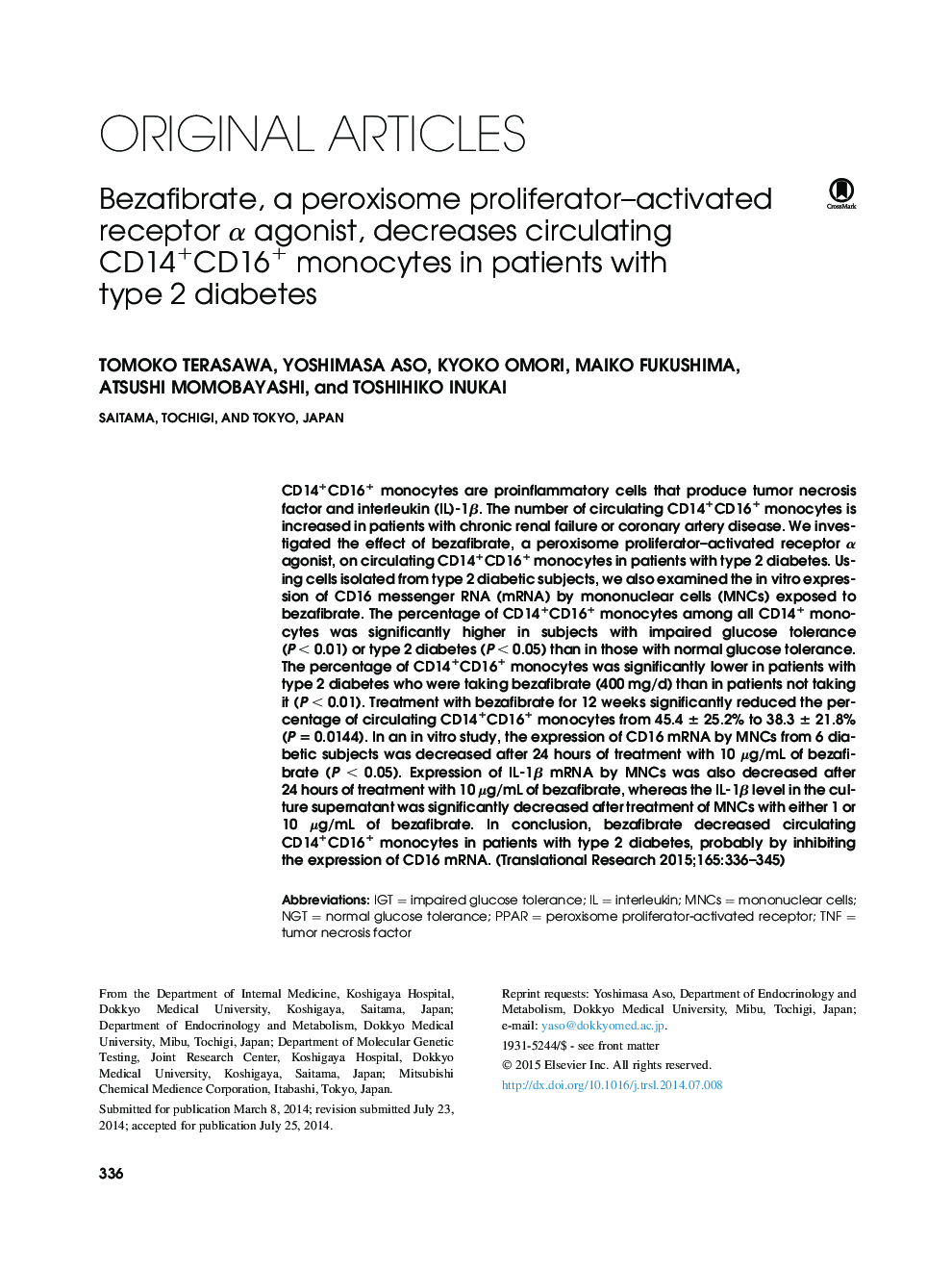| کد مقاله | کد نشریه | سال انتشار | مقاله انگلیسی | نسخه تمام متن |
|---|---|---|---|---|
| 3840274 | 1247901 | 2015 | 10 صفحه PDF | دانلود رایگان |

CD14+CD16+ monocytes are proinflammatory cells that produce tumor necrosis factor and interleukin (IL)-1β. The number of circulating CD14+CD16+ monocytes is increased in patients with chronic renal failure or coronary artery disease. We investigated the effect of bezafibrate, a peroxisome proliferator–activated receptor α agonist, on circulating CD14+CD16+ monocytes in patients with type 2 diabetes. Using cells isolated from type 2 diabetic subjects, we also examined the in vitro expression of CD16 messenger RNA (mRNA) by mononuclear cells (MNCs) exposed to bezafibrate. The percentage of CD14+CD16+ monocytes among all CD14+ monocytes was significantly higher in subjects with impaired glucose tolerance (P < 0.01) or type 2 diabetes (P < 0.05) than in those with normal glucose tolerance. The percentage of CD14+CD16+ monocytes was significantly lower in patients with type 2 diabetes who were taking bezafibrate (400 mg/d) than in patients not taking it (P < 0.01). Treatment with bezafibrate for 12 weeks significantly reduced the percentage of circulating CD14+CD16+ monocytes from 45.4 ± 25.2% to 38.3 ± 21.8% (P = 0.0144). In an in vitro study, the expression of CD16 mRNA by MNCs from 6 diabetic subjects was decreased after 24 hours of treatment with 10 μg/mL of bezafibrate (P < 0.05). Expression of IL-1β mRNA by MNCs was also decreased after 24 hours of treatment with 10 μg/mL of bezafibrate, whereas the IL-1β level in the culture supernatant was significantly decreased after treatment of MNCs with either 1 or 10 μg/mL of bezafibrate. In conclusion, bezafibrate decreased circulating CD14+CD16+ monocytes in patients with type 2 diabetes, probably by inhibiting the expression of CD16 mRNA.
Journal: Translational Research - Volume 165, Issue 2, February 2015, Pages 336–345